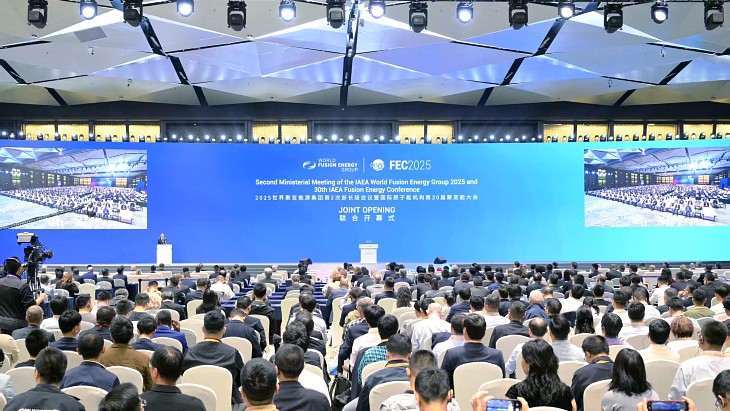The agency’s Director General, Rafael Mariano Grossi, says in his foreword to the third edition of the yearly report that these devices range from "pilot plants aiming for demonstration in the near term to larger scale facilities laying the foundations for future industrial deployment".
He said that "what was once confined to experimental research and long-term aspirations is now rapidly becoming a cornerstone of national energy strategies and industrial planning ... fusion energy is entering a new phase of real-world implementation".
"Fusion energy is not advancing along a single, uniform trajectory. Instead, it is progressing through multiple parallel efforts, reflecting the diversity of technologies, approaches and regional contexts that are currently shaping the fusion industry. Today, nearly 40 countries operate active fusion programmes. Global private investment has surpassed USD10 billion," he added.
The report was launched at the joint opening of the second ministerial meeting of the IAEA World Fusion Energy Group and the 30th IAEA Fusion Energy Conference in Chengdu, China.
The report also includes an opinion piece from Shan Zhongde, Chairman of the China Atomic Energy Authority, in which he says "recent scientific and technological developments and industrial transformation have accelerated the transition of fusion technology from scientific research to engineering and commercialisation. However, the commercialisation of fusion energy also faces scientific and engineering difficulties such as achieving self-sustaining burning plasma, developing materials resistant to high energy neutron irradiation and high heat load, advancing superconducting magnets and achieving tritium self-sufficiency, on the one hand, and challenges in establishing a sound fusion energy industry characterised by a mature supply chain, economic viability and sustained investment, and adapting a regulatory framework commensurate to its safety requirements, on the other".
"In the face of these opportunities and challenges, openness and cooperation are more imperative than ever. No country can overcome all these obstacles alone or benefit from the research outcomes in isolation."
The report runs through progress by country, and by project, noting that target completion dates range from the late 2020s to the mid-2050s.
It also says that industry is playing a more important role in shaping fusion's development pathway and says that "although there is currently no globally harmonised definition of a fusion power plant" there are "increasingly well-defined policy frameworks - governments are beginning to integrate fusion into broader clean energy and innovation agendas offering clearer regulatory guidance".
The Fusion Energy Conference - running until Saturday - provides a global platform for sharing the latest research and development in fusion energy and brings together public institutions and private companies from more than 50 countries.







_97013.jpg)
_51413.jpg)






